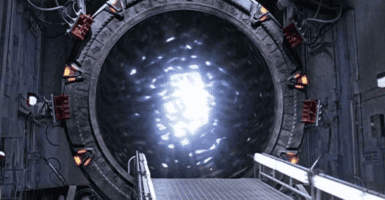Star Trek Has A Huge Time Problem
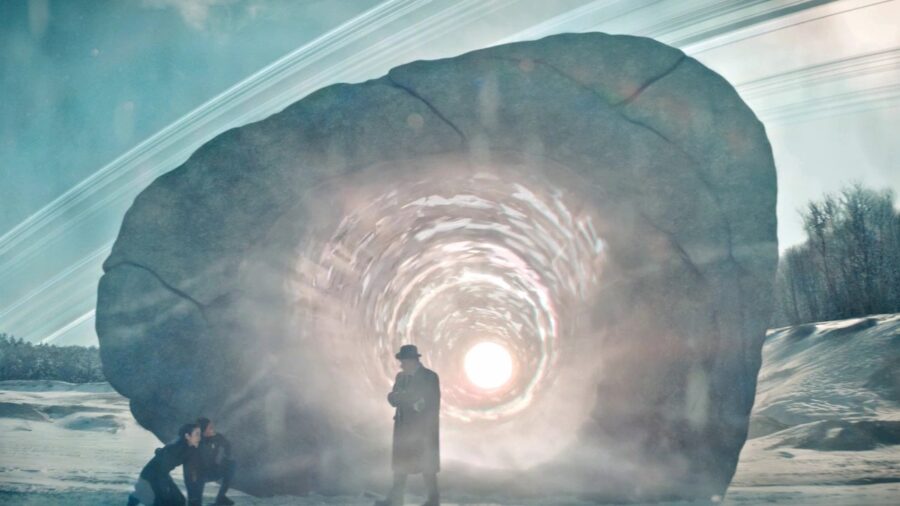
Star Trek has a big problem with time that–with the shuttering of Star Trek: Discovery–just got worse. I’m not talking about time travel, but something much more basic. In regards to its fictional timeline, the earliest Trek show begins in the year 2151, the latest one ends in the 33rd century, there’s over a thousand years of Trek history in between those two times, and the franchise can’t seem to decide where on the timeline it wants to tell its stories.
Star Trek Is All Over The Place
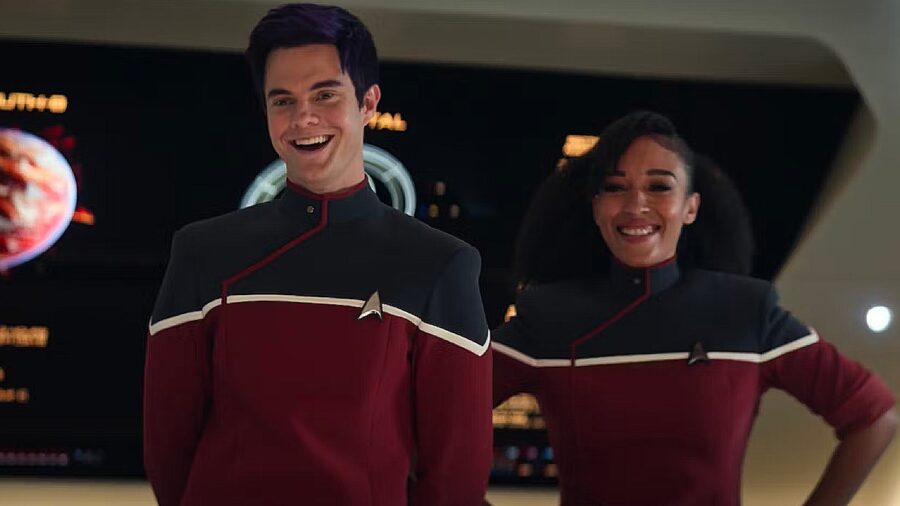
Star Trek, when it comes to time, is all over the place.
We have seasons from four different series coming. Star Trek: Starfleet Academy will be set in the 32nd century, presumably after the events of the Discovery finale (not counting the final scenes set in the 33rd century), putting it somewhere around 3191 or 3192.
Star Trek: Prodigy Season 2–scheduled to stream on Netflix some time this year–will likely take place in 2385, since the previous season unfolds in 2384.
The fifth and final season of Star Trek: Lower Decks will end where Prodigy begins, in 2384.
Meanwhile Season 3 of Star Trek: Strange New Worlds takes place in a time over a century before either Prodigy or Lower Decks, in 2259.
Six Different Eras
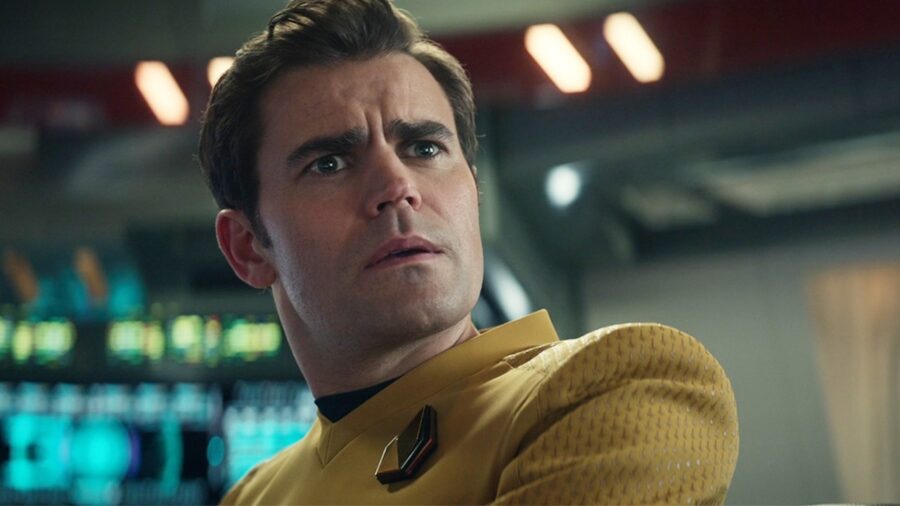
Taken as a whole and not even counting the movies, the Star Trek TV series are spread across time, set in one of six distinct eras.
There’s the Pre-Federation Era (Star Trek: Enterprise), The Those Old Scientists Era (Discovery Seasons 1 and 2, Strange New Worlds, Star Trek: The Original Series, Star Trek: The Animated Series), the TNG Era (Star Trek: The Next Generation, Star Trek: Deep Space Nine, Star Trek: Voyager), the Post-TNG Era (Lower Decks and Prodigy), the Picard Era (Star Trek: Picad), and finally the Post-Burn Era (Discovery Seasons 3-5, Starfleet Academy).
How Do New Fans Enter This Thing?
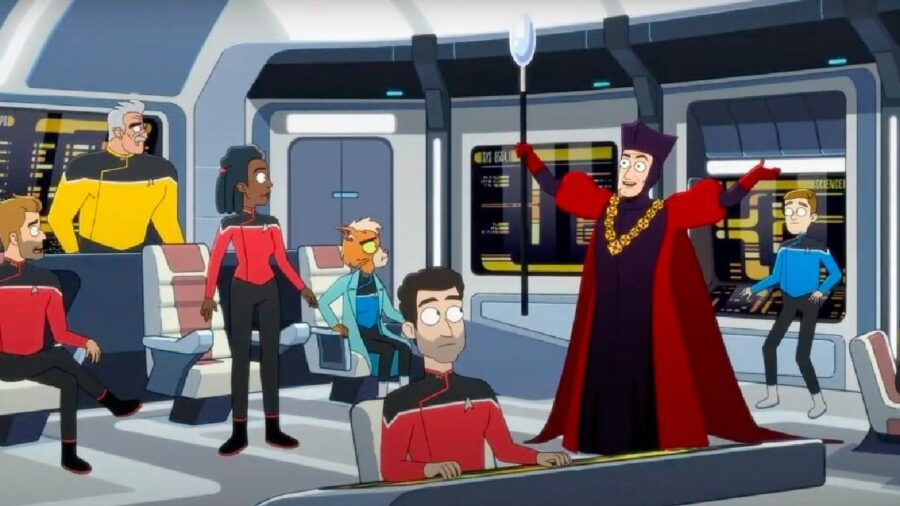
The first and most obvious problem with Star Trek’s series scattered all over time is that it makes it intimidating for new fans. I can’t imagine how I would react if I became interested in a new franchise, asked an already invested fan where to start, and they told me there were four concurrently running series spread across three different centuries.
Of course, I could always pick one of the Star Trek series that isn’t producing new episodes at the time but is still streaming somewhere–I just need to pick one of the other seven series set across 1,000 years.
Lower Stakes
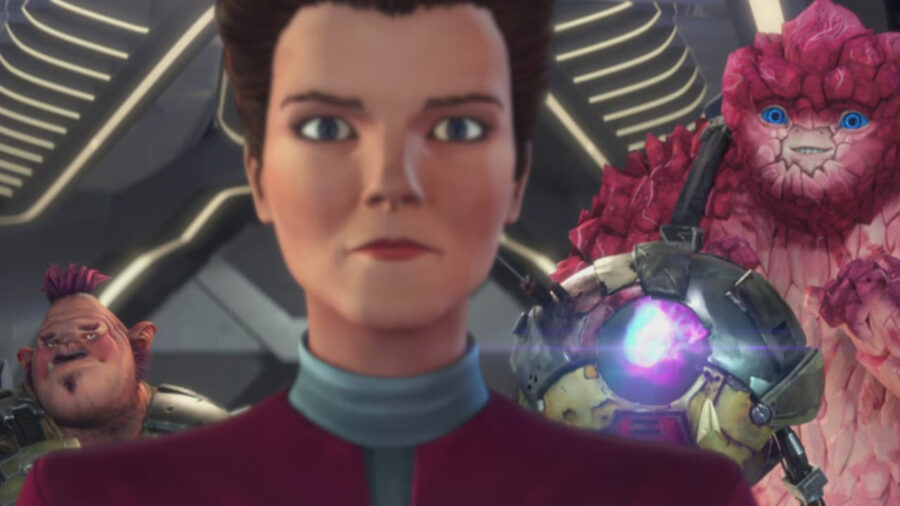
When it comes to Star Trek series set before the most distant in terms of time, the stakes have been lowered. We know, for a fact, that in spite of a couple of cataclysmic events, the United Federation of Planets survives into the 32nd century. Nothing that happens in Lower Decks, Strange New Worlds, or Prodigy could change that.
How Can You Tell A Story About The Future When You No Longer Know Where The Future Is?
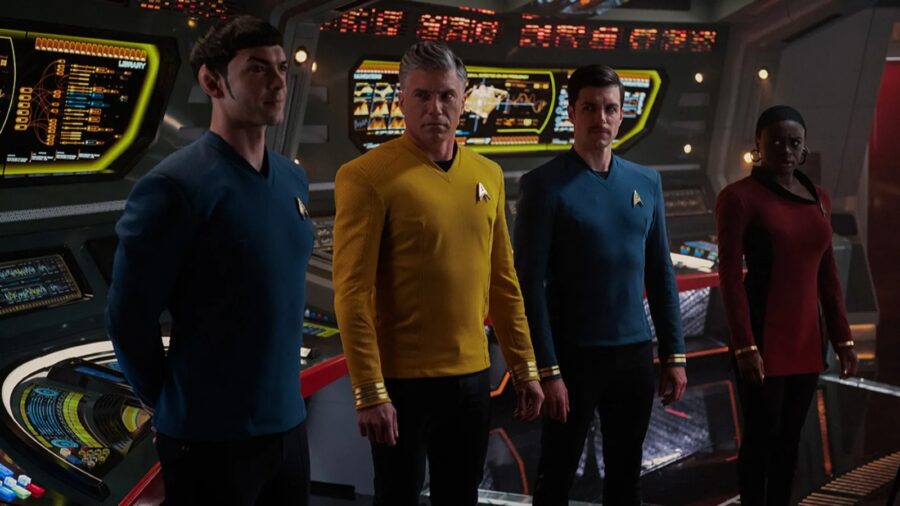
Obviously, even the earliest Star Trek series–Enterprise–takes place in a setting that is futuristic compared to the present time, but it’s impossible to get the sense that the heroes of the franchise are journeying into a bold, new future when in many cases we already know those futures.
Strange New Worlds has become the franchise’s new flagship, and we already know the ultimate fates of the ship itself and two of its chief heroes–Captain Pike and Spock.
Star Trek: Legacy
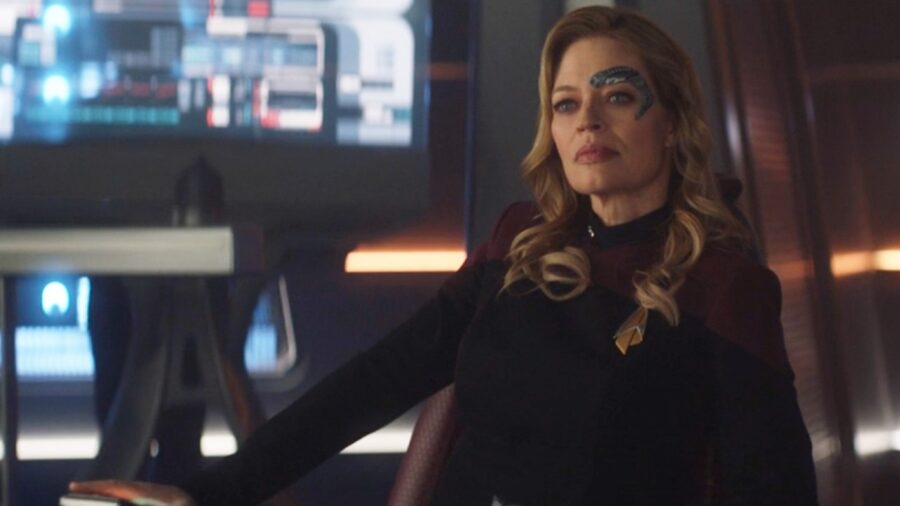
The problem Star Trek has created for itself with time is precisely why I was hopeful Paramount would give a green light to Terry Matalas’s Star Trek: Legacy idea, and why I grow more disappointed every time a new story comes out about how the series doesn’t have a snowball’s chance.
Sure, Star Trek: Legacy wouldn’t be set in the latest time era, but–starting in the early 25th century–there would be enough of a buffer between it and the Post-Burn era.
We could once again have a flagship show with a new Enterprise, and we could see stories unfold about heroes–like Jeri Ryan’s Seven of Nine and Ed Speleers’s Jack Crusher–whose ultimate fates are still mysteries to us.
We could once again have a future that feels like the future, rather than a bunch of dramatized sourcebooks covering different corners of a familiar mythos.



